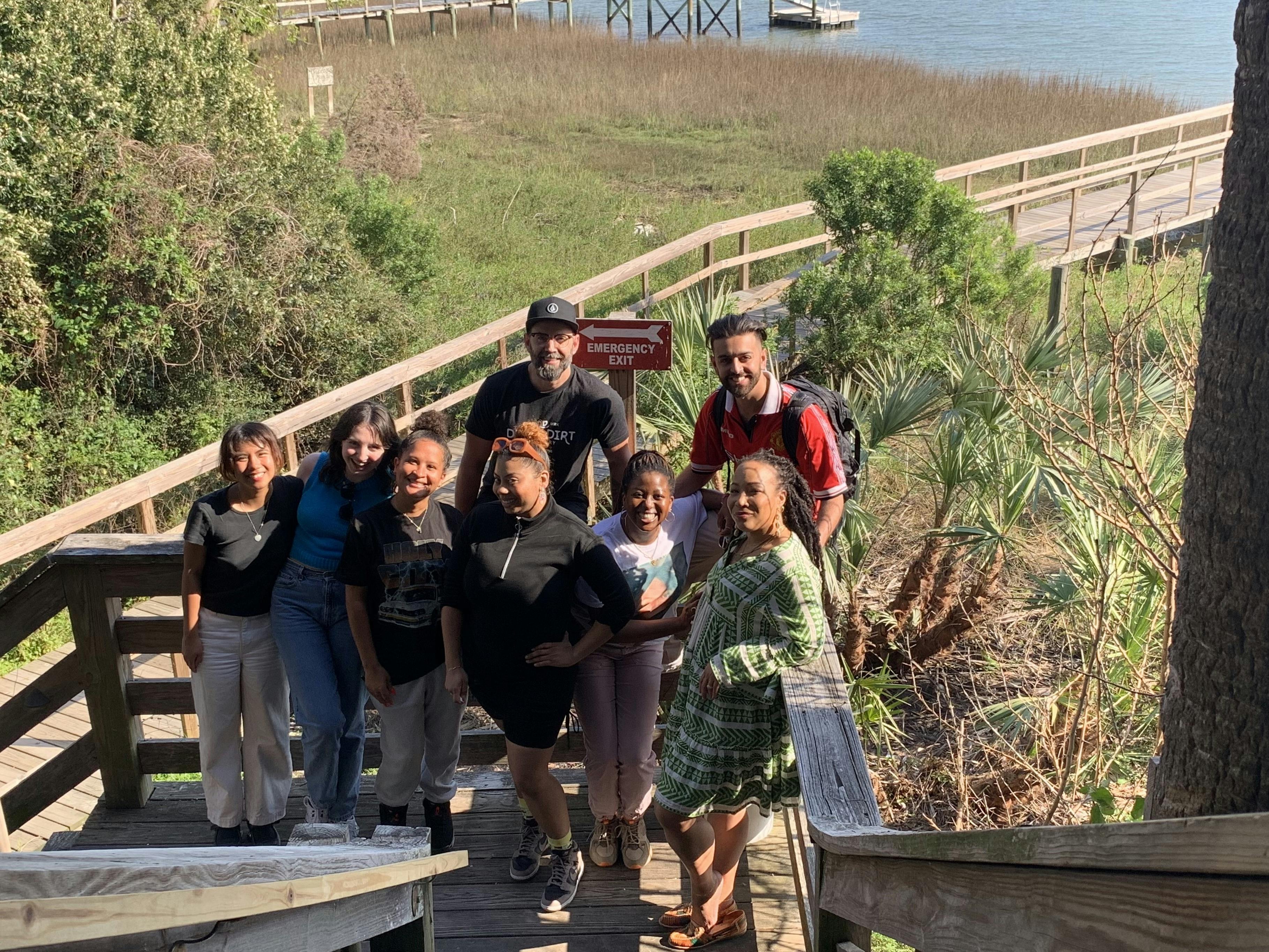The Mayda Creative Co’s D.S. Moss and Dee Allen tell Little Black Book’s Adam Bennett how an extraordinary series of stories is helping to honour Black culinary innovators
“When they tell me they can ‘taste the love in the food’, nothing touches my heart more than that”.
As Marlon Rison reflects on the success of Community Vegan, a food truck serving the neighbourhood of East Austin, Texas, it’s those kinds of words which have a lasting impact. For him - and the other chefs, distillers, restaurateurs, and farmers interviewed as part of the Black Kitchen Initiative - food is more than a meal. It’s culture, it’s home, and, ultimately, it’s love.
It’s also why the Black Kitchen Series podcast, season two of which is available on Spotify as ‘The Black Kitchen Series: Innovators’, makes for such a compelling listen. The series, hosted by Jade Verette and originally created by Wieden + Kennedy, is an unmatched deep dive into the culinary culture of Black America - telling stories and sharing perspectives from a world too often overlooked. This series encourages us to uncover new viewpoints on the Black culinary experience.
Here, D.S. and Dee reflect on the process of creating season two of the Black Kitchen Initiative, and share their thoughts about the importance of storytelling in the preservation of culture…
LBB> D.S. and Dee, what was your initial vision for season two of the Black Kitchen Series, and how closely does that align with the finished episodes?
D.S.> First of all, it’s important to say that the podcast as an entity was the result of the creative team at W+K. So our vision, in part, was an extension of their vision. Building off of season one, the framework within that series was to include guests who had won awards as part of the Black Kitchen Initiative. But the vision for the second season was to expand it out to all Black chefs, farmowners, or anyone with a place in the culinary world.
Dee> I was open-minded about how season two would take form. I listened to a few episodes of season one to get an idea of the format, and although I knew that Mayda's contribution would result in something fresh and new, it wasn't until the process had started that I got a sense of what we were making.
LBB> I understand that you all worked super closely with the W+K team throughout this creative process. Can you tell us a little more about your relationship with the agency team, and how you made those discussions as productive as possible?
Dee> To my mind, this is where the project was created. The W+K team approached us with season one already done and dusted and an idea for how they wanted the series to advance from the first season, but it wasn't until we sat and started to share our ideas that the episodes really took shape.
There was a lot of creative brainstorming from everyone – it really was a collective approach. There were days when it was pure blue sky dreaming, like; "wouldn't it be great if we had this person do an episode" or "how about we go here and shoot one of the episodes?". We had some playfulness with it via strategic brainstorming sessions, and then distilled what came out of them and applied them to the creation of each episode. I wouldn't necessarily say it was experimental, but there were a lot of ideas thrown together, pulled around, and shaped to fit.

D.S.> The whole initiative was about shining a light on Black voices and Black stories. So as the Mayda creative lead and not being from the Black community myself, it was critical that we leaned on the WK team to ensure those stories were being told authentically.
There’s actually a truly fascinating discussion around the topic of the importance of the lenses through which we tell our stories in episode six of this season. If you work in publishing or production, I’d really encourage you to take a listen.
Their team was very much representative of the themes explored in the show. They were on-hand to steer us where necessary, providing an open line of communication throughout the project to make sure we were protecting their voice as the creatives behind the whole idea, which was incredibly important.
LBB> Having an engaging conversation with your guests is clearly a very important part of making this series a success. Can you tell us how you ensured you’d get a fascinating dialogue out of each person you spoke to?
D.S.> It was the alchemy of a lot of prep mixed with good luck. The W+K team had a good instinct on what kinds of stories they wanted to be told. But, once you start telling the story of a real human being, the world has a habit of changing that story along the way, no matter how much prep you do. We described it as holding onto the steering wheel with loose fingers. For the sake of authenticity - which is so important to this series - we needed to allow space for these stories to be told naturally.
Dee> Honestly, that part was simple. The methodology was called Jade of all Jades, our host. The key to a good podcast of this type is making sure the chemistry between host and guests is spot on. From the moment we met her, Jade's personality just brought energy and light to the project.
During the audition process I had the pleasure of sitting with her as other potential hosts walked in. We could have paired her with any one of them, she is a rare breed of human who has a way of making you feel relaxed and just opening up. To see her interact with the guests was deep – she was really invested in what each episode and each person had to say.





